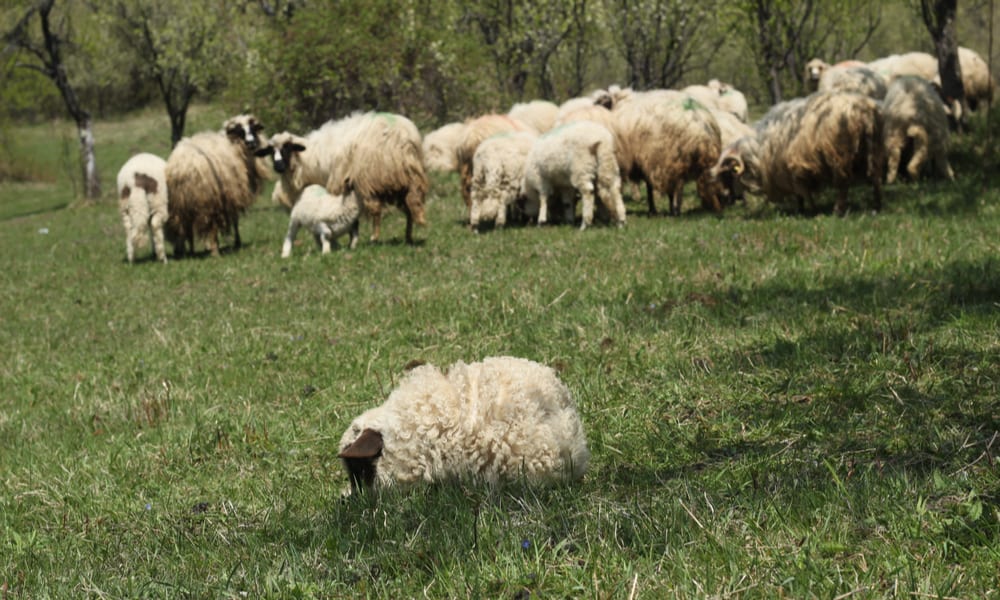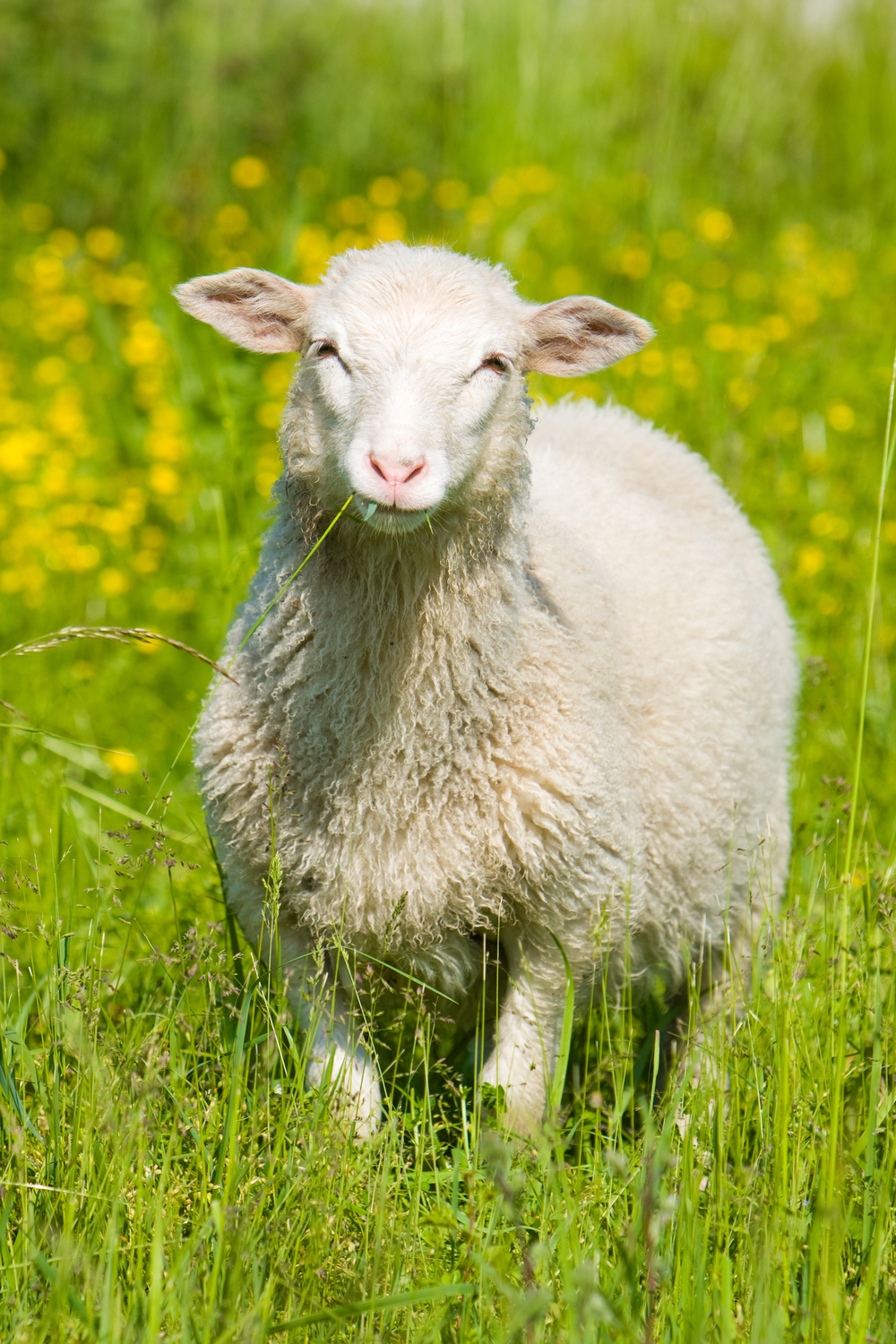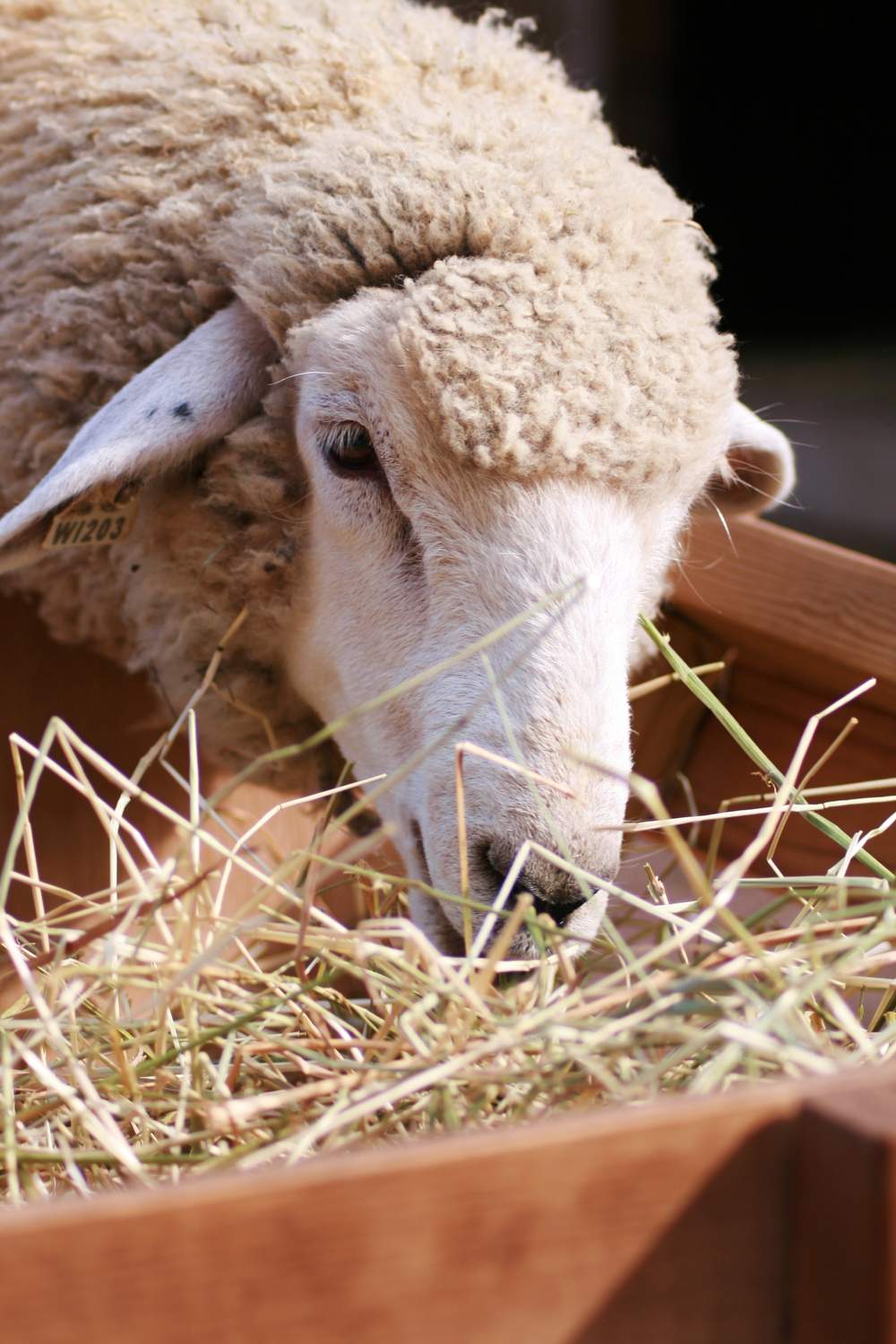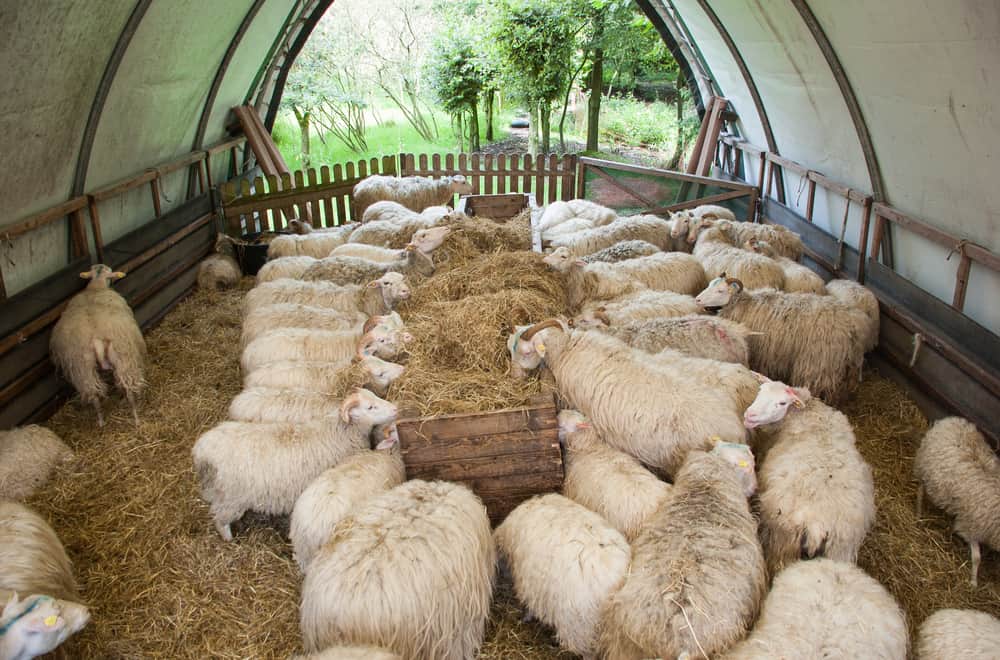If you have not already heard, sheep can be a great alternative to a lawnmower, provided that you supply them with enough grass.
Now that you are finally ready to expand your homestead, be sure to consider the addition of some livestock. Sheep are a fantastic choice because they are gentle and easy to train.
Habits and Biology
Sheep are found all over the world, living in habitats that range from forests to desert conditions. Occasionally, people raise sheep to be wooly pets; however, their agricultural role as livestock includes harvesting for milk, cheese, meat, and wool.
Sheep are diurnal graminivores. In other words, sheep are herbivorous animals that primarily consume grass and share a particular digestive system with over 150 different animals.
Within the abdominal cavity of their four-chambered stomach, sheep have a rumen. A rumen is a holding place for food that the sheep will later regurgitate and re-swallow.
Sheep typically demonstrate a flocking behavior- once separated from the group, sheep will experience stress as anxiety takes over.
FUN FACT: You should be quick to help a sheep that has rolled over onto its back, perhaps due to a fall. Sheep will go into distress and can even die if not helped right side up in a relatively short amount of time. Once you have turned them over, be sure to stick around for a few moments until it has regained its balance.
Contrary to popular belief, sheep are more intelligent than credited. For instance, studies show that sheep form long-lasting bonds with each other. This bond extends to us as their human caretakers.
More specifically, they can recognize and remember approximately 50 individuals at a time for years. Their emotions are rather complex, including empathy, grief, boredom, happiness, fear, and anger.
Lastly, if you have ever looked at a sheep’s face up close, you may have recognized its rectangular-shaped pupils. Although they have poor eyesight, their peripheral vision can easily double the field of view we humans have.
What Do Sheep Like to Eat Most
Sheep are grazers, eating almost any plant available on your pasture, including grass, legumes, and forbs. The fascinating thing is that sheep seek out plants and herbs that contain substances to make them feel better.
In general, sheep prefer leafy greens over plants with fibrous stalks. Keeping that in mind, sheep will adapt to their environment quickly, eating almost anything with nutritional value.
Sheep enjoy eating in the cooler hours of the morning and again in the afternoon. If enough pasture is available, sheep will graze for nearly seven hours a day.
On average, a sheep will consume around 2.5%-3% of its body weight in dry matter each day. So, a 40-kilogram ewe (female sheep) will eat between 1000g-1,200g per day.
As you make plans for your homestead, you will want to consider the breed of sheep, its purpose on your farm, body weight, and overall health to determine the amount of pasture necessary and decide how many sheep your land can support.
You sheep are not much different from you and me; their daily nutrition should include proteins, fats, vitamins and minerals, fiber, and carbohydrates.
Remember to provide your sheep with constant access to fresh, clean water; this is critical for healthy, happy sheep to thrive.
Foods for Happy Sheep
- Fresh Pasture: This includes grass, legumes, forbs, and clovers. When left to graze freely, you will notice that sheep will eat the more nutritious roughage first- the forbs and clovers.
- Stored Foods: When fresh pasture is not readily available, you can feed your sheep a combination of hay, silage, haylage, or crop by-products like corn, barley, etc.
- Grains and Supplements: Many times, grain is unavailable in the wild; however, domesticated sheep may benefit from this dietary supplement significantly if they have heightened nutritional needs, such as a pregnant ewe. These supplements are all-natural ingredients, but you should moderate their rationing to ensure a balanced diet.
- Unlimited fresh, clean water: The amount of water that your sheep will consume depends on their age, health, and production level.
- Healthy snacks: I am sure that it will be hard to resist those cute wooly sheep of yours. If you want to give them an occasional treat, know that it’s ok but always keep in mind that these snacks should be healthy.
Food to Avoid Feeding your Sheep
It is vital to know what you cannot feed your flock. In general, feeding sheep is not too tricky, but you need to be aware that many plants and trees can be highly toxic for their consumption.
As you plan out your pasture and design suitable grazing land for your sheep, refer to this list of things not to feed them. For domesticated sheep, refrain from feeding the following human foods:
- Dairy products
- Tomatoes
- Chocolate
- Potatoes
- Avocado
- Turnips
- Broccoli
- Cabbage
- Meat
- Kale
You must pay careful attention to what your sheep have access to because many non-forage foods are toxic and kill our wooly companions.
Be sure to properly dispose of clutter and litter, such as the string that holds a bale of hay together. Ingestion of foreign objects can seriously hurt your sheep.
Refrain from regular feeding of alfalfa because it is too protein and calcium-rich for sheep. Instead, this type of hay should be monitored and reserved for particular circumstances such as pregnant ewes, babies, or recovering sheep.
If you are going to provide your sheep with supplements, be sure that they are sheep-safe. For example, the copper present in a goat supplement would present a toxic threat to sheep.
Grain overload is also a precarious condition that can damage a sheep’s rumen lining, even causing secondary infections, which must be treated by a professional.
Unfortunately, domesticated sheep face many potentially toxic and poisonous hazards. To ensure that your sheep thrive, you can keep a keen eye around the barn for dangerous items, carefully regulate store-bought foods, and provide them with fresh water and a prosperous pasture.
Tips to Feed your Sheep
For the most part, your sheep should be consuming an almost exclusive diet of grasses, either in fresh or dried form. With that in mind, most dietary health issues in domestic sheep relate to improper feeding.
Sheep are stimulated by their grazing efforts, so as their shepherd, you want to ensure that their pasture is adequate in size and provides them with varied nutritional value.
If your homesteading project is newly underway, choosing how to seed your pasture can be advantageous. A healthy mixture of legumes and grass is advisable.
When selecting a mixture, keep in mind that you will not want to plant too many species simultaneously. A better strategy may be to choose one plant type from each of the following categories: legumes, sod-forming grasses, and bunch grasses.
Since sheep are ruminants, it is best to bring your sheep to graze in the early morning and late afternoon. Even if they are not deep sleepers, sheep need ample time to digest and rechew the cud (partly digested food) between feedings.
Rotational grazing is a good practice to avoid pasture depletion if you have enough land to support it. This method also allows for increased soil fertility and the distribution of organic matter.
If you face grazing limitations and choose to feeds your sheep dried grass such as hay along with other supplements, a helpful piece of advice is to invest in three separate feeders.
A sheep-specific hay feeder is necessary for better ergonomic and safety reasons and for reducing waste. In addition, a second and third trough-style feeder is adequate to disperse grain and mineral supplements, respectively. And, lastly, a good waterer is imperative.
Remember that silage and haylage need to be stored appropriately. If it becomes wet and moldy, it can cause listeriosis – a fatal disease in sheep.
When it comes down to it, sheep have individualized eating needs, so feeding management is key to helping your flock thrive.
Lastly, raising and feeding sheep can be more costly than initially expected if you do not employ proper management skills. There are several cost-cutting tips to follow; however, it boils down to experience and connection.
Invest the time to notice peculiarities within your flock, and you will be able to make better-informed decisions regarding their medical, nutritional, and emotional needs.
If you prioritize the health and wellness of your sheep, you will create a thriving homestead along with becoming the model shepherd.
Summary
Sheep are low-maintenance livestock. These wooly animals have been fundamental to many civilizations and continue to be significant for agricultural purposes.
Whether you raise sheep for a specific purpose or have them as pets, you need to pay close attention to their dietary and nutritional habits. It may all seem overwhelming, but you will know how to feed and maintain a healthy flock properly with a bit of research.
Remember to comment below with any questions and concerns about caring for your domesticated sheep.



